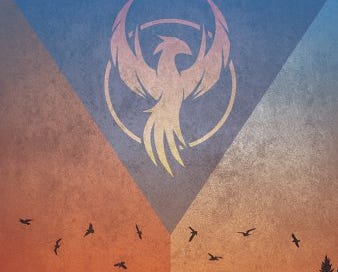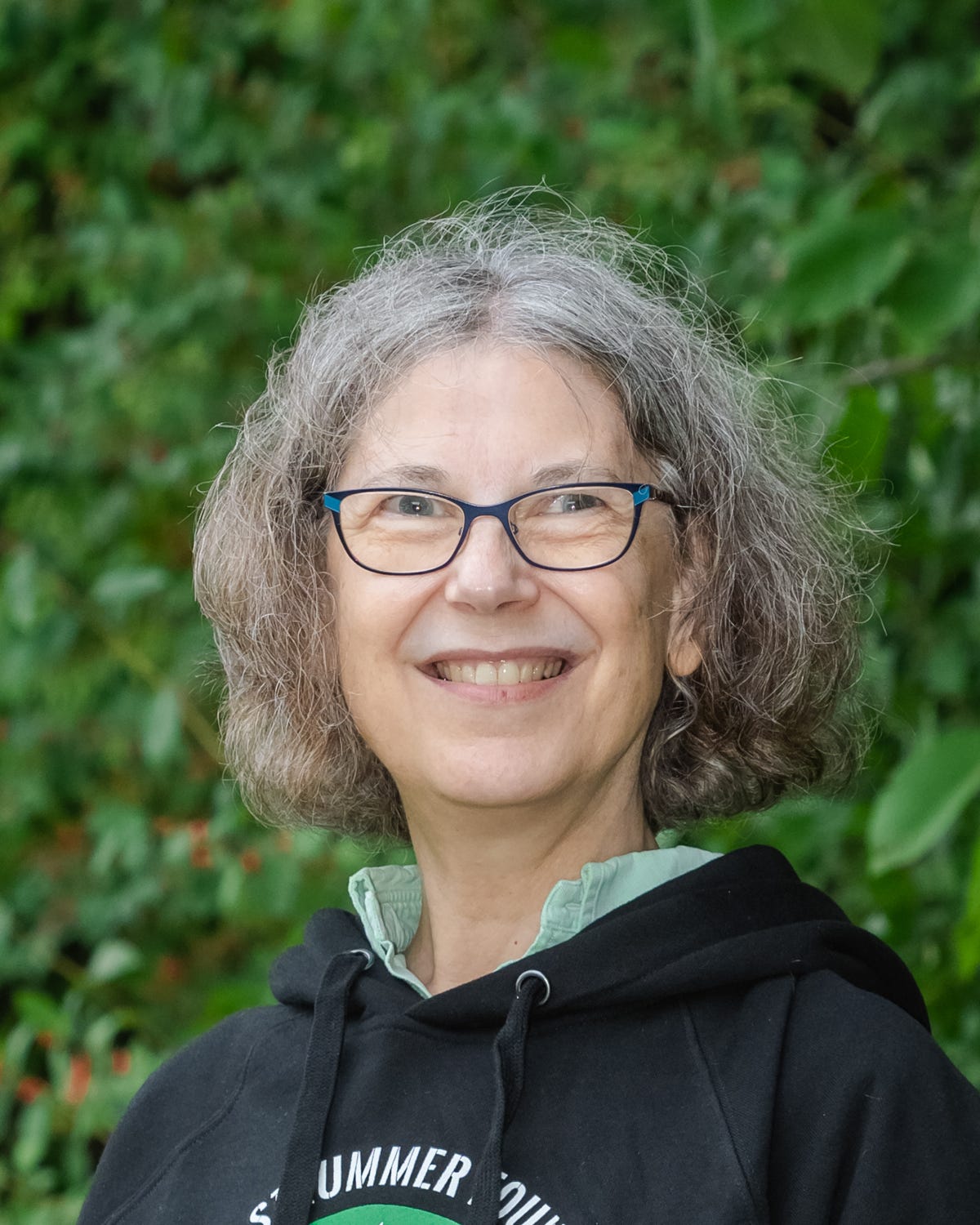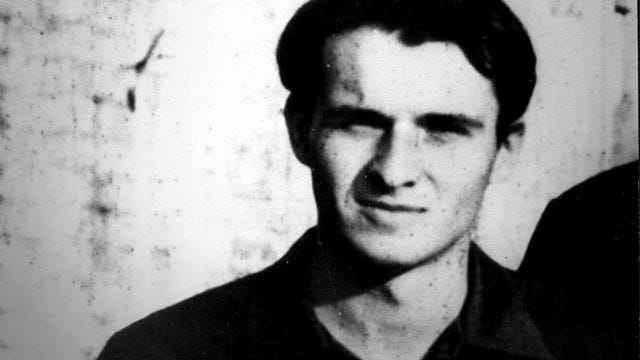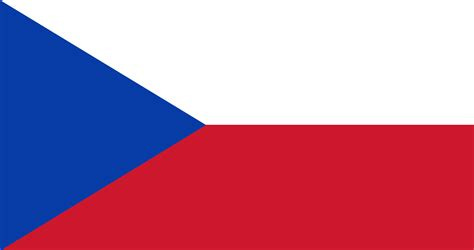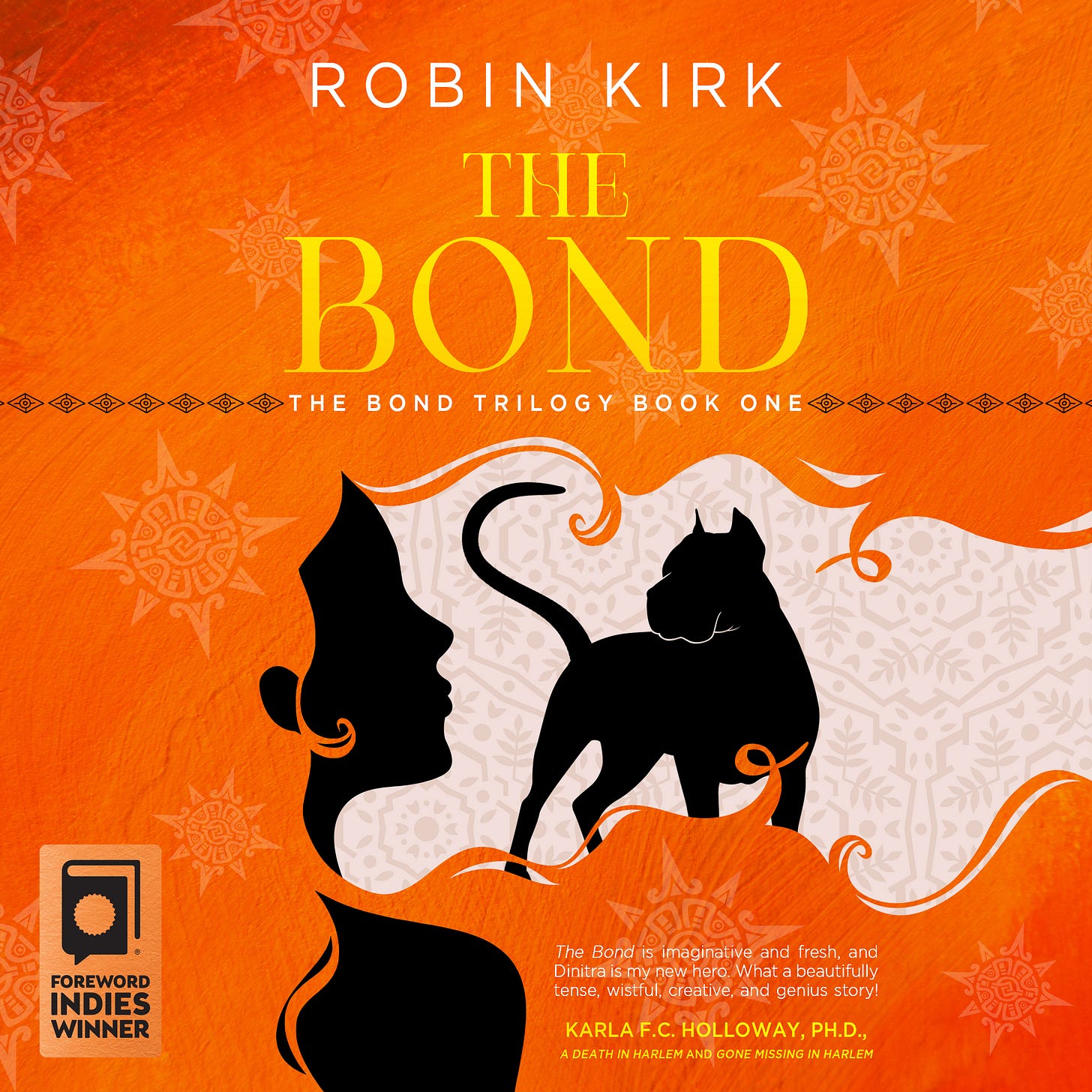Bravery means standing up despite fear and risks
TL;DR: Interview with Torch author Lyn Miller-Lachmann
I’m starting a new occasional series in 2023 that includes interviews with authors writing books with human rights themes.
And boy do I have a great one to start with: Torch by Lyn Miller-Lachmann.
Published in 2022 by CarolRhoda Lab, Torch reminded me powerfully of a long-ago book I read as a middle-schooler. I don’t remember the title or author but the story stuck with me and made me want to write.
What I remember is this: a young German soldier drafted to fight in World War II tried to remain a good person amidst brutal violence. His struggle humanized a topic that even then seemed inhuman and very far away.
In Torch, Lachmann takes on a very different struggle through the eyes of three young people. The book is engrossing from the very first paragraphs as Lachmann explores the intricate decisions that Tomáš, Štěpán, Pavol, and Lída take to help their friends and find a way to stand up for freedom and human rights.
Torch is set during the Prague Spring, a period of mass protest against repression in Czechoslovakia in 1968. One of the many strengths of Torch is Lachmann’s skill at showing the personal struggles her characters face even as they fight for their country or make the excruciating decision to escape.
I don’t want to give away spoilers, but this gripping story kept me turning the pages and I highly recommend it.
If you have recommendations for other authors and books that you love, please leave them in the comments!
And here’s the interview!
Tell me how you came to choose this place, time, and story. What first attracted you to Tomáš, Štěpán, Pavol, and Lída?
My initial introduction to this story came from a picture book I translated from Portuguese to English, Three Balls of Wool (Can Change the World), written by Henriqueta Cristina, illustrated by Yara Kono, and published in the U.S. by Enchanted Lion in 2017. It’s the story of a family fleeing the right-wing Salazar dictatorship in Portugal, arriving in Czechoslovakia just before the Prague Spring, and coming to realize that this communist dictatorship offered no more freedom than the place they’d left. In the course of my research for the translation and another book I’m writing that’s set in Portugal at that time, I came across a memoir by a Portuguese journalist living in exile in Czechoslovakia who experienced the Prague Spring and the repression that followed the Soviet invasion. She wrote about Jan Palach’s public suicide to protest the Czechoslovak people’s passivity after losing their freedom. I wondered what motivated Palach, a university student, to give up his life and what happened to his friends who didn’t know what he was planning but who came under suspicion because of it.
I’ve visited Prague and remember the chills I felt when I descended the steps into the crypt of the Saints Cyril and Methodius Cathedral. There, the partisans who assassinated Reinhard Heydrich, the Nazi SS officer who was a principal architect of the Holocaust, hid until the Nazis found them. The men committed suicide rather than become the Nazis’ prisoners. Without giving away the meanings of the title, the historical setting for your story is the Prague Spring of the late 1960s. That history is informed by so much tragedy and a history of mass suffering as well as an intense legacy of protest. What was it like to virtually live through your characters as they struggled with what to do with their young lives?
I also visited that memorial to the Czech Resistance heroes, and it inspired my character of Ondrej, Lída’s father. Ondrej offers a counterpoint to Pavol. He’s a survivor, but he’s also traumatized, and he passes this trauma on to his daughter, who’s attracted to a boy like her father. Yes, my young characters experience trauma, but they also embody hope, particularly in the friendships they form. Friendship becomes a powerful source of resistance and one of the things that kept me going as I worked on this book.
You visited Prague for your research. How did it make you feel to walk the streets that your characters lived on? Did you have any breakthroughs while exploring?
Most of the story takes place outside of Prague, in a mining and railroad center in the country’s north. I also visited Bratislava for my research, which gave me insight into Pavol’s Slovak culture as well as information on the fortified border, as Bratislava is very close to Austria. As far as walking the streets of Prague, I also thought about Václav Havel and the Velvet Revolution in 1989, which freed the country from totalitarian communist rule. Twenty years after Jan Palach’s death, a commemoration at the site (which I visited on two different trips), resulted in Havel’s arrest and the arrest of other pro-democracy leaders, one of the key events that led to the groundswell of public resistance that culminated in the Velvet Revolution.
I was particularly drawn to Štěpán. Here is this young athlete and former bully now trying desperately to protect his friends as he faces imprisonment and torture. I want to know more about how this character took shape.
The first character who came to me was Tomáš, who like me is autistic and struggles to fit into his society. Like me, he faced bullying all the way through school. His chief bully was Štěpán, who emerged as the second character of this trio of survivors. Štěpán is an outsized figure at his school because of his athletic ability and his family’s car, but he has a secret, namely that he’s gay and in love with Pavol. Although Štěpán knows that Pavol isn’t going to reciprocate, he hangs on Pavol’s every word, as people in love often do. And that means he’s going to change, to become a kinder person, one who uses his strength to protect rather than harm. Štěpán’s transformation shows the power of love, as well as the many ways that one can love and show that love.
How has writing this book shaped the way you think about how young people are brought to action in favor of freedom and human rights?
It’s made me think of the multiple ways that young people can resist oppression and fight for freedom and human rights. People have different talents and circumstances, and asking everyone to make the same kind of commitment is a recipe for burnout and failure. For instance, at the beginning Pavol asks Tomáš to do something that Tomáš is incapable of doing, leading to a tragic result. But in the end, Tomáš carries out an act that succeeds beyond what he could ever imagine. Successful movements depend on people engaged in what they’re best at, working together.
I love how you addressed the great political questions of the day yet kept your young characters complex and worried about such relatable things as getting into college, an unplanned pregnancy, and gender identity. Did the characters come to you more or less whole or did you discover these nuances as your story developed?
Tomáš, my most autobiographical character, came to me whole, but the others developed as I got to know them better. Lída was the one who developed last, and I think it’s because she’s the most guarded about who she is. People tend to judge her and count her out, because of her poverty and itinerant family situation. Her strength, and her interests, emerged slowly because she’s this kid who’s had to face a lot of adult situations and take on a lot of adult responsibilities too soon, but she does have dreams and desires, and her background gives her some unique skills when others depend on her to survive.
I imagine for many of your readers 1968 seems impossibly far away. What has been the reaction from young readers to your story?
The book just came out, and I don’t think a lot of young people have had a chance to read it yet, but the response from teachers, librarians, and reviewers has been beyond anything I could have imagined. (I kind of feel like Tomáš here!) I was gratified, though, by young people’s enthusiasm for Gringolandia, the historical novel I wrote that’s most similar to Torch. Even teens who said they never read historical fiction, or they mainly read contemporary romance, said they loved Gringolandia and couldn’t put it down, so I’m hopeful that they’ll feel the same way about Torch.
A bit of an odd question, but I find writing about bravery hard. My own work sometimes comes across as too simplistic. But you write about bravery, both daily and more broadly, in an authentic, deep way. How do you think about how to depict bravery in a story?
Bravery isn’t only standing up for what’s right despite the risks. It’s standing up despite the risks when you know exactly what those risks are and you’re scared. It’s knowing when you’ve taken the easy way out in the past and saying you’re not going to do that again, but now you’re looking into the abyss and the easy way out looks pretty enticing. For instance, Tomáš bails on his friends because he has a lot to lose. He knows he’s not brave, but he ends up doing the scariest thing he can imagine. Lída has also compromised her principles by turning her back on her Roma friend. She’s ashamed, and it motivates her to do better, but she also knuckles under to the system at key points because she’s still finding her strength.
You were diagnosed with autism as an adult. You write movingly about being a “high-achieving loner.” Am I right to see a lot of you in Tomáš?
Yes, which is why he was the first character to come to me as I thought about this book, and he came fully formed in my mind.
Do you think it would have made your teen years different to have had this diagnosis earlier? Have you seen more writers talking about their autism and introducing more characters with autism? How do you think this informs your writing?
I think that having the diagnosis would have made things easier in the sense that I could have received counseling in social skills earlier, and my peers might have been more understanding in a more inclusive environment. Although kids with disabilities weren’t generally included in mainstream classrooms when I was growing up, the situation had begun to change when my kids were in school and even more so for their younger cousins. There definitely have been more autistic authors writing autistic characters since my pioneering middle-grade novel Rogue came out in 2013, and the industry has become more aware of and open to these perspectives in the past decade. It means a lot to autistic kids to see themselves portrayed in authentic and positive ways in books, because the tropes of an earlier era were false and demeaning.
In the Author’s Note, you write about your life-changing because of a high school class. You say you were drawn to communism as a political system that promoted equality and a commitment that would require selflessness. A later friendship with a Cuban exile took the shine off what communism meant for many who lived under it. What do you think young people today might be drawn to in a similar way and how do you think they might explore some of those feelings through the lens of your story?
While young people tend to be more liberal socially than their elders, there’s a large group who have become captivated by authoritarianism, white nationalism, and religious extremism. Throughout history, strongmen have had their allure, because democracy can be messy and it gives people who are different from them, who they might not like, a voice. When I was young and wanted so much to fit into my community and society, I entertained the idea of a system where people were assigned to roles according to their talents rather than having to choose and possibly fail at that choice. But putting your faith in a strong leader and an all-powerful bureaucracy means that if the leader is violent or corrupt, or the bureaucracy is corrupt or incompetent, you have no recourse. You can’t vote them out in the next election because elections, if they even exist, aren’t free or fair. You can’t protest because you’ll be arrested, imprisoned, or killed. The press, controlled by the leader or ruling party, is full of lies, and you have to regurgitate those lies if you want to stay out of trouble. Your taxes go to a police state that has taken away your freedom and rights, one that creates a network of informants that destroys all trust among friends and family. I hope readers of Torch will come away with an understanding of the dangers of authoritarian and totalitarian regimes and how these regimes penetrate every aspect of their daily lives in ways they’re not going to like.
Talk to me about the cover on the hardback version. It’s really striking and beautiful.
The case cover won the Undies Award from 100 Scope Notes, featured on the website of School Library Journal (which subsequently gave the novel a starred review). Both the dust jacket and the case cover feature barbed wire, symbolic of the fences that kept citizens of communist countries from escaping to the West during the Cold War. Above the tree line on the dust jacket is the flag of Czechoslovakia (now Czechia, or the Czech Republic), and superimposed on the blue part is the phoenix. Pavol sees his self-immolation as giving life to the resistance, his hope that the Czechoslovak people would rise up to reclaim their freedom of expression, the books, the music, and the democratic reforms of the Prague Spring.
In your acknowledgments, you talk about being in Author Jail. Can you elaborate?
Between 2009 and 2015, I had three novels published, but nothing after that until 2022—a publishing drought of seven years. While my 2009 novel Gringolandia beat expectations, the reviews for Rogue were disappointing, and Gringolandia’s companion novel, Surviving Santiago received very few trade reviews and didn’t sell well. My agent at the time couldn’t get editors to read my next manuscript, a YA contemporary. We had 10 nonresponses out of 11 submissions. The one after that, a YA historical set in Portugal, had a less than 50% response rate and no takers. I also had three middle-grade proposals and half a dozen picture books die on submission during those years. But I kept writing, took classes to improve my craft, and tried new approaches to storytelling, including the collective protagonist structure of Torch and the verse novel. I was working on a verse novel, an offshoot of the historical novel set in Portugal that had failed to find a publisher, when Zetta Elliott approached me to co-author a middle-grade verse novel that would become Moonwalking. I mentioned Author Jail in the context of my husband’s infinite patience with my lagging career. He passed away unexpectedly in fall 2021 and didn’t get to enjoy with me the success of both Moonwalking and Torch.
Will the book be translated into Czech?
I hope it will be translated into a lot of languages. It’s a European story, but also one that I think can shed light on all our situations today, especially with the rise of authoritarianism around the world and the resurgence of a repressive and, as we see now, genocidal Russian imperialism. It’s no surprise that the nations most eager to help Ukraine were either part of the Soviet Union like the three Baltic nations or suffered under Soviet occupation and puppet regimes.
What’s next for you?
My translation from Portuguese of the contemporary YA graphic novel Pardalita, by Joana Estrela, published by Levine Querido, is launching in April 2023. I’ve also translated a YA illustrated prose poem by the acclaimed Angolan writer Ondjaki, which will be out at the end of 2023. This year will also see my picture book debut with Ways to Play, illustrated by Gabriel Alborozo and also published by Levine Querido. It celebrates the joy of an autistic child’s unconventional way of playing with toys and other objects around the house. And my YA verse novel set in Portugal will be published in 2024; it depicts many of the themes I’ve explored in Torch.
Check out Lyn’s blog here. You can purchase Torch anywhere you buy books: Bookshop, Barnes & Noble, Amazon, and of course your local bookstore.
Book news
I have some coupons that allow fans of The Bond Trilogy to download a free audiobook of The Bond. Write a comment on this newsletter if interested!
Also, I have a FREE short story, “Making 12,” about the origin of Dinitra’s mutant battle dog. If you want a link, post a comment!
Thank you for reading.

